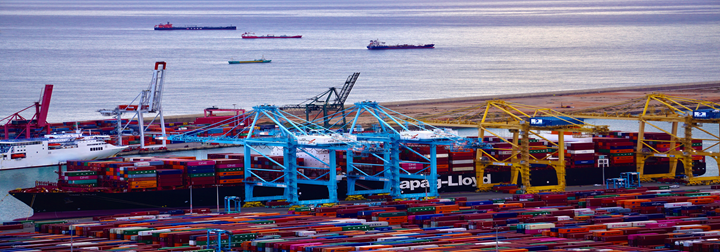The strictest COVID -19 lockdown in China since the pandemic began has resulted in container goods sitting at Shanghai’s port for nearly two weeks.
Over 470 ships are reportedly waiting to deliver resources into China. These ships carry materials from grains to metal ore. Ships started to line up outside Shanghai port after authorities initiated a city-wide lockdown last month to control the spread of COVID-19. Global supply chain has also been affected due to this marine congestion outside Shanghai as it is one of the world’s busiest ports.
In more than two weeks, the congestion has expanded to Ningbo-Zhoushan. It is because ship owners divert their ships to other ports of the country. Notably, the port is operating normally under a “closed loop“. However, trucks entering and leaving the city are facing difficulties. The city is cut off from the rest of the country due to an increase in COVID-19 cases.
Due to the increase in COVID-19 cases, there is a shortage of port workers at Shanghai port. This led to slowing the delivery of documentation due to which cargo ships are taking time. Only those export containers that were at the port of Shanghai could be loaded on the ships.
Meanwhile, goods booked on outbound vessels are stranded at warehouses as shuttle trucks can not operate due to lockdown.
According to a Bloomberg report, a total of 197 container ships are either loading or waiting to load in the combined anchorage of Shanghai with Ningbo. It is reportedly 17 percent higher than the last week.
People in the business sector have expressed concern over the impact of the COVID-19 lockdown on the economic growth of the country.
Wait times at Shanghai marine terminals has increased nearly 75% since the lockdowns began. Delays at the Shanghai terminal have sent ships to neighboring ports in Ningbo and Yangshan, but those ports are beginning to get congested as well.
The global impacts of this current bottleneck are still pending and depend greatly on the length of Shanghai’s lockdown. This could turn into the biggest supply chain issue since the start of the pandemic if China’s marine shipping congestion isn’t cleared up soon.
Reference:
https://www.visualcapitalist.com/satellite-maps-shanghais-supply-chain-standstill/
https://www.timesnownews.com/world/china-heavy-marine-congestion-reported-around-shanghai-due-to-covid-19-lockdown-supply-chain-to-be-affected-article-90944176
The floating traffic jams off ports. The multiplying costs of moving freight. The resulting shortages of goods. All of this had seemed like an unpleasant memory confined to the COVID-19 pandemic. But no such luck!
An ocean container capacity crunch has hit global trade just as peak shipping season starts, with freight spot rates up some 30% over the past few weeks and heading higher.
The first joint Europe-wide assessment of the drivers and impact of chemical pollution by the European Environment Agency (EEA) and the European Chemicals Agency (ECHA) has concluded that, despite progress in some areas, “more work is still needed to reduce the impact of harmful substances on human health and the environment”. Key findings include:
The severe drought which has forced the Panama Canal, one of the world’s busiest trade passages, to limit daily crossings could impact global supply chains during a period of high demand.
In the early hours of March 26, the Singapore-flagged ship Dali, loaded with 5,000 containers, slammed into Baltimore’s Francis Scott Key Bridge, causing the 1.6-mile (2.5-kilometer) bridge to collapse in a matter of seconds. The Dali was departing for Colombo when the disaster struck. Initial fears were confirmed that half a dozen people lost their lives in the accident.
The pharmaceutical and biotechnology industries constantly seek innovative methods to enhance product stability, solubility, bioavailability and ease of use. Within this realm, CDMOs [Contract Development & Manufacturing Organizations] serve as invaluable partners in the development and production of high-quality drug products.
Chinese New Year 2024 is upon us, disrupting logistics from Asia starting Feb 10th. This event is expected to impact global shipping until Feb 21. Freight rates from Asia has skyrocketed with rates to the US surging by 3.5X and Europe by 6X.
Amid ongoing Red Sea diversions by shipping giants like Maersk, CMA, logistics managers are globally confronting a dual challenge of escalating ocean and air freight prices alongside cargo disruptions due to
Why will CM be the next generation on quality?
